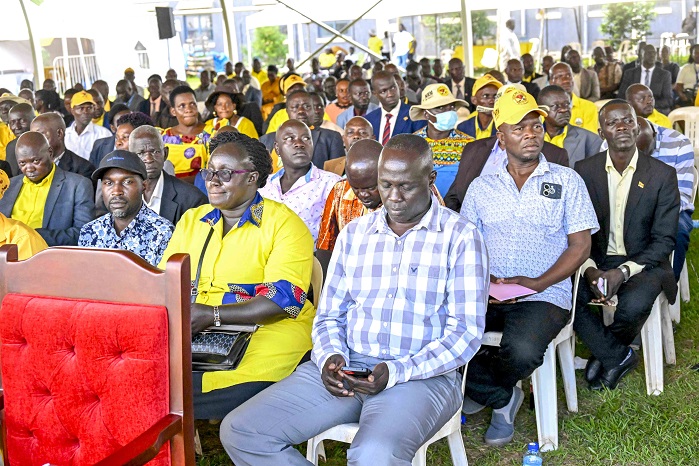
Kampala, Uganda I HABARI DAILY I The recent participation of a substantial delegation of 71 officials from Uganda at the 78th session of the United Nations General Assembly (UNGA) in New York, United States, sparked a wave of public concern and controversy, prompting the Government to come clean on what transpired.
Okello Oryem, the Minister of State for Foreign Affairs, sought to address these concerns, shedding light on the allocation of financial resources for the delegation’s attendance at the international event.
Minister Oryem explained that not all members of the delegation were funded by the Ugandan government. Contrary to what had been portrayed in some reports, a significant number of delegates received funding, either in part or in full, from various United Nations agencies or development partners.
Oryem added, “Some members on the delegation list did not travel as was portrayed, and for those whose source of funding is unknown to my ministry, we have brought the request by Parliament to those institutions’ accounting officers for them to explain to Parliament.”
Furthermore, Minister Oryem emphasized that ten officials from Uganda’s permanent mission to the United Nations in New York are based in the city. Consequently, the government did not incur additional travel and per diem costs for their participation in the UNGA meetings.
Oryem disclosed that 31 delegates were funded by respective ministries, departments, and agencies, 17 were supported by the United Nations and its partners, while 21 delegates did not travel for the General Assembly, contrary to previous depictions.
Defending the delegation’s presence at UNGA, Oryem highlighted the significant platform it provides for multilateral discussions on a wide range of international issues. Uganda’s delegation actively engaged in the assembly debate, emphasizing the nation’s progress in implementing Sustainable Development Goals, poverty reduction, gender equality, and inclusive development, among other vital topics.
Moreover, Oryem noted that the delegation represented Uganda’s perspectives on issues such as health, refugees, climate change, and strengthened engagement with developing countries, particularly members of the Global South. This engagement is pivotal as Uganda prepares to assume the chairmanship of the Non-Aligned Movement and the Group of 77+ China in January 2024.
While Oryem acknowledged that Uganda’s delegation was relatively modest in size compared to other participating nations, he stressed that the delegation’s size was determined by the session’s extensive agenda and the necessity to effectively represent the nation and influence policy outcomes. He noted that ministerial negotiations at UNGA are intricate and require multiple actors to address various issues and interests, leading to concurrent meetings and last-minute negotiations that put pressure on delegation size.
Uganda’s delegation, led by Vice-President Jessica Alupo as the head, comprised representatives from key ministries, departments, and agencies tasked with issues on the UNGA agenda. It also included civil society organizations. The delegation’s composition ranged from eight members under Vice-President Alupo to five members under Prime Minister Robinah Nabanjja, each representing their respective domains.
The Ministry of Foreign Affairs had nine members, the Ministry of Water and Environment seven, the Ministry of Health eight, and other ministries and organizations contributed varying numbers of delegates. This diversity in the delegation structure aimed to ensure comprehensive and effective participation in the complex deliberations at the UNGA.




